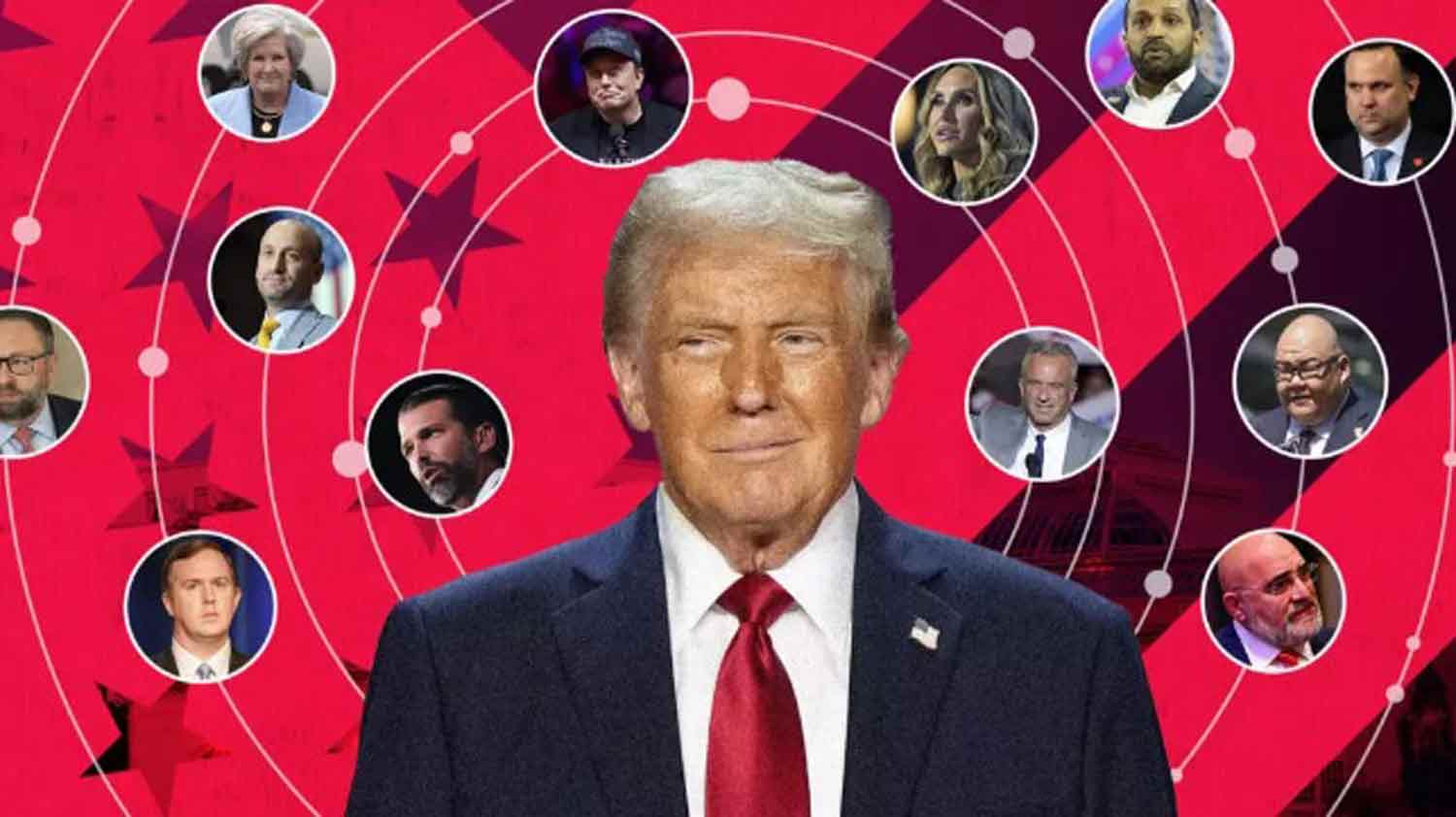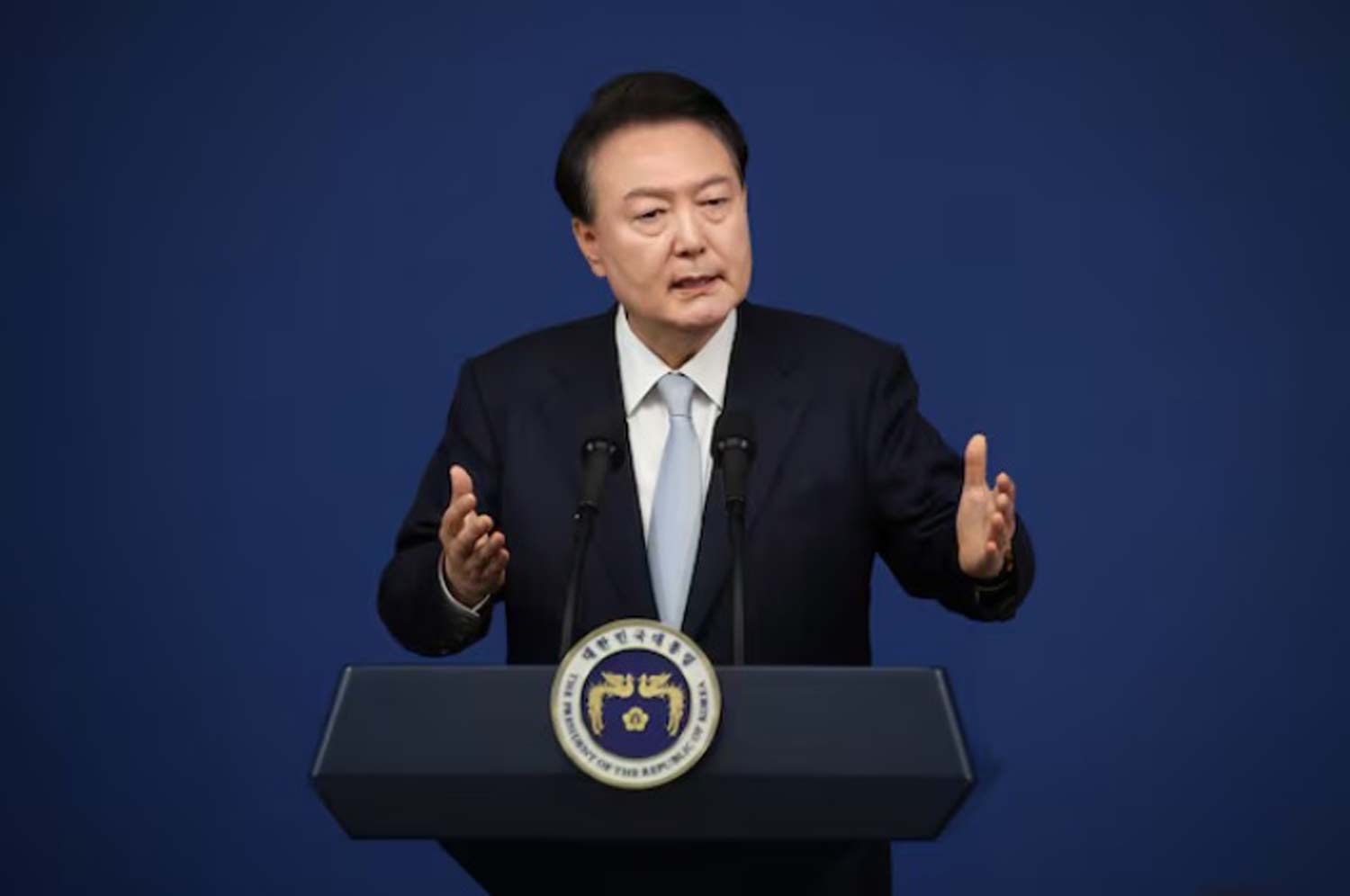Donald Trump is proceeding in accordance with the mandate granted by his decisive election victory, methodically assembling a governing team that reflects his hardline MAGA ideology.
This administration is poised to become one of the most conservative in modern history, focusing on targeting Washington elites and undocumented immigrants, dismantling the regulatory framework, and promoting an “America First” agenda on the global stage.
The contours of Trump’s second term are taking shape at his Mar-a-Lago estate, where he is being celebrated by club members in a lively atmosphere, notably enhanced by the presence of Elon Musk, one of the world’s wealthiest individuals.
Each of the president-elect’s recent appointments for key positions has elicited significant concern among liberals, which appears to be an intentional strategy.
Stephen Miller, who was last seen publicly asserting that “America is for Americans and Americans only” during a heated rally at Madison Square Garden, is anticipated to be appointed as White House deputy chief of staff for policy, a role in which he would likely oversee mass deportations.
Tom Homan, designated as the “border czar,” embodies a tough persona that aligns well with a president-elect who favors strong leadership. He reinforced this image on Monday by appearing on Fox News, where he has been a commentator for years, cautioning Democratic governors against obstructing deportations and urging them to “get the hell out of the way.”
Trump’s influence will dominate the new administration, and his selections for national security indicate a more traditional Republican stance on foreign policy compared to his approach to immigration.
Reports suggest that Trump is poised to nominate Marco Rubio as secretary of state. The senator from Florida previously ridiculed Trump during the 2016 campaign and was viewed as a neoconservative figure that many of Trump’s supporters criticized. However, Rubio has since embraced Trumpism, declaring at the Republican National Convention this summer, “The only way to make America wealthy and safe and strong again is to make Donald J. Trump our president again.” The New York Times was the first to report on Rubio’s anticipated nomination.
For the position of UN ambassador, Trump is expected to select House GOP conference chair Elise Stefanik, who gained prominence after shifting away from mainstream conservatism to become a staunch supporter of Trump. In a statement, the New York congresswoman expressed her readiness to promote President Donald J. Trump’s vision of America First leadership on the global stage from Day One at the United Nations.
On Monday evening, reports indicated that Trump has approached Florida Representative Mike Waltz to serve as national security adviser. This decision is likely to create significant ripples across the Atlantic, especially considering the former Green Beret’s earlier assertion that “it’s time for allies to invest in their own security” and his criticism that U.S. taxpayers have been shouldering the financial burden for too long.
Strong stances against China
Waltz, along with Senators Rubio and Stefanik, are known for their strong stances against China, suggesting a clear direction for Trump’s policy regarding the emerging superpower rival.
Additionally, the president-elect has selected former New York Representative Lee Zeldin to lead the Environmental Protection Agency. This choice comes despite Zeldin’s low approval ratings from progressive environmental organizations during his time in the House. The last two Democratic presidents have leveraged the EPA’s regulatory authority to combat climate change, but Zeldin has committed to advancing Trump’s “drill, baby, drill” energy agenda, framing his role as one of “protecting access to clean air and water,” echoing his new boss’s often-quoted remarks on climate issues.
A common thread among these new appointments is their unwavering loyalty to Trump, particularly during his tumultuous post-presidency marked by numerous indictments. Each individual is recognized for their tendency to offer the kind of exaggerated praise in media appearances that Trump values. During his first term, feelings of betrayal arose when some officials prioritized their constitutional duties over their allegiance to him, as seen with former FBI Director James Comey and others.
The gradual announcement of key government appointments indicates a level of strategy and coordination that was lacking during Trump’s initial transition in 2016. This may be attributed to the influence of Susie Wiles, the incoming White House chief of staff, who successfully managed a well-organized general election campaign despite the president-elect’s often controversial statements at rallies and on social media. However, it remains too early to determine if this method will be sustained within the White House. Throughout Trump’s first term, he frequently undermined his own agenda by engaging in public disputes with administration members he quickly became disenchanted with.
Figures such as Rubio, Waltz, Stefanik, Zeldin, Homan, and particularly Miller are viewed with concern by Trump’s critics, who worry that the president-elect may pursue extreme policies. Nevertheless, each of these selections embodies a facet of the president-elect’s political ideology and instincts. Their appointments also reflect a broader desire for significant changes in Washington and U.S. foreign policy, which motivated many of the voters who supported Trump.
Most of these individuals are accomplished professionals and, with the possible exception of Miller—who is often labeled a hard-line extremist—fit within the typical profiles of those appointed to government roles. While they may lean significantly to the right, this aligns with the overall trajectory of the GOP and its electorate during the Trump administration.
Rubio, a former candidate for the presidency, is recognized globally and holds positions on the Senate Foreign Relations and Intelligence Committees. Stefanik, a Harvard alumna and former aide in the George W. Bush administration, ranks among the highest-positioned Republican women to have served in the House. Waltz, a veteran with multiple combat deployments in Afghanistan, the Middle East, and Africa, has received four Bronze Stars and has worked under Defense Secretaries Donald Rumsfeld and Robert Gates. Homan, who previously acted as the director of Immigration and Customs Enforcement, is deeply involved in border-related issues, although some critics perceive his approach as somewhat insensitive. Zeldin, an Army veteran and former congressman, made a surprisingly competitive run for the governorship of New York.
Alyssa Farah Griffin, who was the communications director during the Trump administration, characterized his current selections as “individuals who undeniably possess the qualifications for their roles and whose intentions are clear.” Griffin, now a commentator for CNN and a frequent critic of Trump, remarked to Erin Burnett that the speed at which her former boss is assembling his prospective government stands in stark contrast to the personnel challenges faced during his initial term.
How far will Trump go?
The appointments of Miller and Homan indicate that Trump remains committed to his promises of a sweeping deportation of undocumented immigrants, a cornerstone of the most extreme closing argument made by any presidential candidate in recent history.
In a recent interview on CBS’ “60 Minutes,” Homan was asked whether there was an alternative to the policy of separating migrants slated for deportation from their parents, a controversial approach during Trump’s first term. He responded, “Of course there is. Families can be deported together.”
Miller, a significant figure in Trump’s first term and a key architect of his most provocative speeches, showcased his hardline views at the Conservative Political Action Conference in February. He asserted that immigration policy should be straightforward: “Seal the border. No illegals in, everyone that’s here goes out — that’s very straightforward.” Miller further elaborated that the next phase would involve rounding up undocumented migrants and transporting them to “large-scale staging grounds” where planes would be ready for deportation.
Despite the alarming scenarios presented, there remains ambiguity regarding the extent of Trump’s deportation agenda and its alignment with his ominous rhetoric. Homan, for instance, dismissed the notion of “concentration camps” and widespread neighborhood sweeps as absurd.
As the president-elect, Trump is not facing reelection in 2028, theoretically leaving him with nothing to lose. However, he has occasionally hesitated to pursue actions that could lead to significant unpopularity. Additionally, formidable legal challenges from civil liberties organizations and immigrant advocates may hinder deportation efforts. The prospect of expelling millions of undocumented individuals could prove to be extremely costly, disrupt the labor market, provoke backlash from major corporations, and complicate supply chains—all factors that could negatively impact the economy and the future administration.
There is potential bipartisan agreement among many Democrats and Republicans regarding Trump’s commitment to initially deport criminal undocumented migrants, which represents the most straightforward aspect of his strategy. However, the subsequent phases could present political challenges for Trump.
Chad Wolf, a former acting Homeland Security secretary during Trump’s first term, suggested that there are still uncertainties surrounding the full scope of the president-elect’s plans, although a broader enforcement initiative could be feasible. “It may be a tough political position, but there are criminals here today that aren’t being removed,” Wolf stated during an interview with CNN’s Jake Tapper, criticizing the Biden administration for its shortcomings in this area. He argued against the idea of exempting entire groups from legal accountability, while acknowledging that there are alternative pathways for workers to enter the U.S. legally or for some undocumented migrants to gain legal status if they are married to U.S. citizens.
However, Trump’s critics and vulnerable undocumented migrants are unlikely to find reassurance in the president-elect’s recent appointments.
Trump’s emerging foreign policy for his second term is shrouded in uncertainty.
In contrast to Trump, Rubio has not been an ally of Russian President Vladimir Putin, although he has recently supported the president-elect’s stance on the necessity of ending the war in Ukraine.
Waltz opposed the Biden administration’s efforts to negotiate a ceasefire in Gaza between Israel and Hamas. His views align more closely with the right-wing ideologies prevalent among many Republican voters and differ significantly from the standard policies of America’s Western allies and some Democratic leaders.
Both Rubio and Waltz represent a more traditional approach to foreign policy compared to the more isolationist factions within the broader Trump coalition. Regarding Ukraine, Waltz has criticized the Biden administration’s strategy of supplying arms to President Volodymyr Zelensky’s forces as “too little, too late.” However, he has also endorsed Trump’s recent assertion that Europe should take on more responsibility for supporting Ukraine, allowing the U.S. to focus on its own borders.
In any new presidential administration, the selection of staff is crucial and often reveals the ideological direction of the White House. However, given Trump’s history of significant staff turnover, stability may be elusive.
Discover more from Defence Talks | Defense News Hub, Military Updates, Security Insights
Subscribe to get the latest posts sent to your email.





